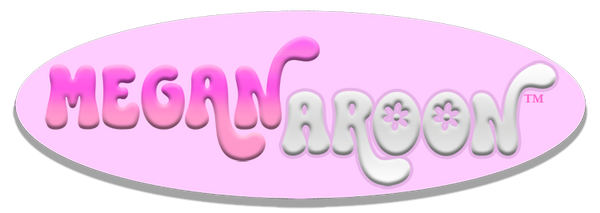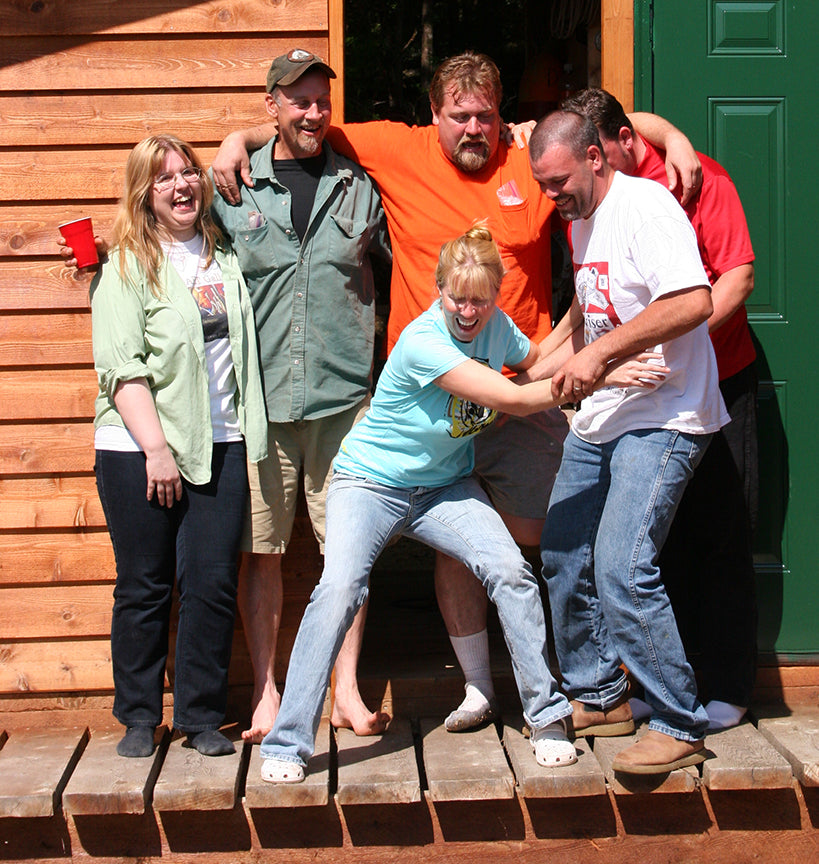
As the first rays of the Alaskan sunrise kissed the treetops, I would often find myself standing on the creaky wooden deck of our floating home, the morning mist enveloping the dense forest around us. Growing up off the grid in the bush of Alaska on a floathouse was a unique and transformative experience that shaped my perspective on life, nature, and self-sufficiency.
Our family's story begins with the decision to embrace a lifestyle that was far removed from the conveniences of city living. My four siblings, parents and I left behind all that we knew in the little town of Missoula, MT and embarked on a journey to brave the wilds of Alaska. Nestled on the banks of what was once an old cannery, that burned down in 1947, our floathouse became a sanctuary amidst the untamed wilderness, and remnants of the past. Surrounded by towering spruce and fir trees, it was a place where the hum of a generator replaced the city's constant buzz, and the call of eagles echoed louder than the honking of cars.

Image credit: Tara Neilson (my sister), Alaska for Real Blog
Living off the grid meant learning the art of self-reliance from a young age. We solely created our electricity through a generator and battery banks. Schoolwork and creative pursuits were lit by the dim glow of kerosene lanterns that flickered long into the cold winter nights. Water wasn't something that magically flowed from a tap; it was a resource we carefully collected, purified, and appreciated, especially in the frozen winters.
 In the heart of the bush, our education took on a different form. While my city counterparts took a school bus, I took a small skiff across treacherous, open waters to a one room school, where my siblings and I made up half the school population. From one day to the next we never knew if we'd make it across the Bay and around the point that tested our little boats seaworthiness, and our mental fortitude. Far too often nature had other plans for us, and we would instead break open our extra set of school books and study at home next to the warmth of a crackling fire while our teacher gave us lessons for the day over a CB radio.
In the heart of the bush, our education took on a different form. While my city counterparts took a school bus, I took a small skiff across treacherous, open waters to a one room school, where my siblings and I made up half the school population. From one day to the next we never knew if we'd make it across the Bay and around the point that tested our little boats seaworthiness, and our mental fortitude. Far too often nature had other plans for us, and we would instead break open our extra set of school books and study at home next to the warmth of a crackling fire while our teacher gave us lessons for the day over a CB radio.

School had always come easily for me, and I absorbed all the knowledge I could from any book to be found. But, even more educational were the lessons in adaptability and resourcefulness of living off grid, skills that proved invaluable as we faced the challenges of living in such an isolated environment.

Winters in the Alaskan bush are nothing short of magical, but they also demand resilience. Our floathouse became encased in a crystalline world, surrounded by a stillness broken only by the occasional crack of frozen ice. Heating our home meant chopping wood, a chore that brought a profound connection to the cycles of nature, and til this day the sound of a chainsaw cutting through the air takes me back to a life of simply surviving to exist. As the auroras danced in the Arctic sky, and the wolves melodically howled outside, we huddled by the woodstove, finding warmth not just in the flames but in the shared stories and laughter that echoed through our floating haven.

The sense of community in the bush was unlike anything I have experienced elsewhere. Neighbors weren't just people who lived nearby; they were a lifeline. We relied on each other for everything from sharing supplies to lending a helping hand during the construction of a new cabin. Bonds formed in the isolated Alaskan wilderness were forged by the shared understanding that nature was both friend and foe, and cooperation was essential for survival. Even now, almost 50 years later, so many of us children from the bush, are now finding peace and solace by going back to our childhood home of Meyers Chuck and building new memories laid on the foundation of our past. My Alaskan sanctuary is a pile of rocks and wind buffered trees standing as sentinels along the Northwest Passage. I will soon be adding whimsical, Hobbit and Seuss inspired tiny homes, on "Flamingo Island", an ode to my days spent reading fantasy books to pass the long winter Alaskan days and as an adult basking in the Florida rays.
 As I reflect on my unconventional upbringing, I realize that it wasn't just a story of isolation but one of profound connection—with nature, and with myself. The floathouse in the Alaskan bush was more than a home; it was a crucible that molded me into someone who values simplicity, resilience, and the beauty of living in harmony with the natural world. It's shaped me into the person I am today and allowed me to embark on this new, life changing journey traveling the U.S. as a solo female van lifer, and embracing my oneness with the wildness inside.
As I reflect on my unconventional upbringing, I realize that it wasn't just a story of isolation but one of profound connection—with nature, and with myself. The floathouse in the Alaskan bush was more than a home; it was a crucible that molded me into someone who values simplicity, resilience, and the beauty of living in harmony with the natural world. It's shaped me into the person I am today and allowed me to embark on this new, life changing journey traveling the U.S. as a solo female van lifer, and embracing my oneness with the wildness inside.
 In the end, growing up off the grid in the bush of Alaska wasn't just a childhood; it was an odyssey—an adventure that continues to shape my identity and perspective, no matter where life's currents may take me.
In the end, growing up off the grid in the bush of Alaska wasn't just a childhood; it was an odyssey—an adventure that continues to shape my identity and perspective, no matter where life's currents may take me.

To read more about my sibling and I's unconventional upbringing, you MUST read my sister Taras memoir of our life growing up as the original Alaskan bush family in her book "Raised in Ruins" available on Amazon. Here is an awe inducing excerpt of what it was like living a wild and unruly life as true Alaskan Bush kids.
"One night mom woke me and Megan. She had the gun on her shoulder. "It's the wolves," she whispered. Jamie, with the badly sprained ankle, and the boys were still asleep {were no help}. The lantern that worked as a nightlight to ward of Megan's night terrors created a dim glow that wasn't strong enough to turn the windows above the bed black. There was a full moon outside, shining more light into the house than the lantern could.
"You have to run across to the wanigan and put the girl dogs inside. I'll keep watch with the gun."
Dad had built a large cage on the front deck of the wanigan to put the female dogs in when they were in heat, but no one thought it would withstand a wolf attack. As Megan and I crawled out of the warmth of our bedding we heard the wolves howling on the ridge. Our hearts beat faster and faster, waking us up completely as Mom hurried us to the front door.
It was bitterly cold outside, but we didn't stop to grab coats or put boots on. We raced out onto the cold boards of the floathouse's deck and then across the frost-covered rocks of the beach.
The whole world was lined with icy moonlight. The forest looming around us was leached of color, in shades of gray, with the blackest shadows beneath the trees. We felt the unseen eyes of forest creatures and ran faster. Mom stood in the open door with the gun. We wondered if she'd be able to use it if the wolves came after us.
The rocks were so piercingly cold that they burned our feet as we ran. The line of seaweed left by the tide crunched when we stepped on it, scraping our soles, sending a musky scent into the still, cold night. The huge empty bay was still, reflecting the moonlit sky.
I felt Megan's terror. Knowing her fear of the night, let alone with wolves added into it, I almost wished she wasn't there beside me. After all, though I did have a sense of urgency and fear, I was more impressed-even awed-by the experience."

Sign up for the MeganAroon Newsletter for weekly blog updates


